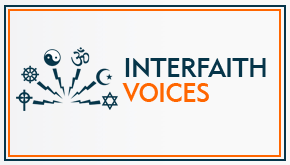America’s Civil Religion
For the past 50 years or so, there’s been a fascinating idea floating around: that in the absence of a state religion, we need a civil religion to bind us together. We may not have a Notre Dame Cathedral, but we have a set of beliefs, symbols, holidays and rituals that help define who we are as a nation, while tapping into the deep human longing for myths, stories and traditions. Featuring Richard Gamble, history professor at Hillsdale College and author of In Search of the City on a Hill: The Making and Unmaking of an American Myth and Kirk Savage, author of Monument Wars: Washington, DC, The National Mall, and the Transformation of the Memorial Landscape.
Reading List on Civil Religion:
“Civil Religion In America” by Robert Bellah
God’s New Israel: Religious Interpretations of American Destiny edited by Conrad Cherry
Bonds of Affection: Americans Define Their Patriotism edited by John Bodnar
Sacred Harp and the Faiths of Our Fathers
We hear a soundscape of sacred harp music– a unique type of American folk music that blends human voices, and actually has no harp in it at all!
Then, we examine the faiths of our founders. Sometime around the 1980s, we in America started to imagine the Founding Fathers as older, wiser versions of ourselves. For many conservatives, the founders became good church-goers, intent on creating a Christian nation. And for many liberals, they became secular deists, with little need for God or organized religion. The truth is somewhere in between. With Nancy Groce, folklife specialist at The American Folklife Center at the Library of Congress and
Frank Lambert, author of The Founding Fathers and the Place of Religion in America.
Customizing the New Testament: Jefferson’s Bible
It turns out that Thomas Jefferson, our third president and the lead author of the Declaration of Independence, spent his off hours in the White House creating his own personal Bible. Using a razor blade and a glue brush, he carefully removed miracles, resurrections, and all parts of the Gospels he considered supernatural. What was left was a work of private reflection, written in secret. With Mitch Horowitz, executive editor of TarcherPerigee.
Maureen Reflects on Religious Freedom
Maureen reflects on a core American value this Fourth of July– religious freedom. She remembers the historical misperception of Catholics in the United States and admires the tapestry of diversity that freedom brings.



